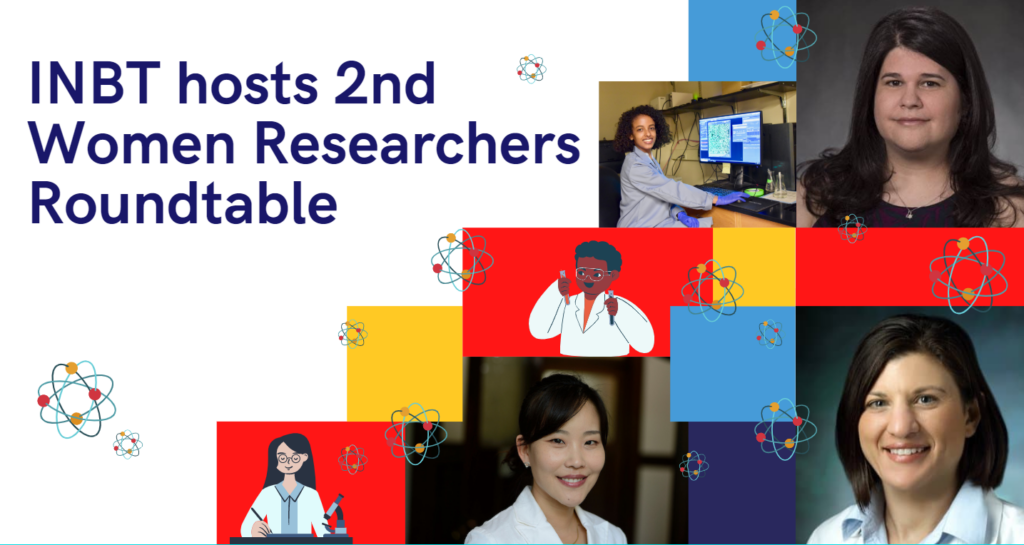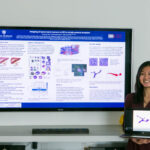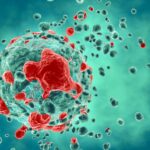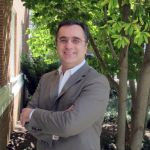Women Roundtable Discussion

By Amy Weldon
The second INBT Women Researcher Roundtable went on this week and despite its virtual setting, the one-hour event was once again packed with brilliant minds, hard-hitting topics, and opportunities for participants to share experiences. The panel included INBT’s own Soojung Claire Hur and Daniele Gilkes, as well as Tzipora Sarah Karin Eisinger at the University of Pennsylvania Perelman School of Medicine, and was moderated by INBT graduate student Habben Desta.
Topics during the roundtable varied from balancing the positives and negatives of belonging to a minority in the lab to how to move forward encouraging the recruitment of diverse researchers in a genuine way. Examples and experiences with discrimination were described by each panelist and participants were encouraged by hearing they were not alone in how they have been treated or seen others treated.
This was also the case on the topic of imposter-syndrome, a rampant phenomenon among graduate students and early-career scientists. Feelings of not being good enough, smart enough, moving quickly enough, etc. prevent women, in all fields and walks of life, from pursuing passions, asking questions, and pushing through perceived barriers. Panelists discussed how this negative self-talk about their own work and abilities affected their studying and career paths and shared some of the advice they had gotten along the way.
“It’s important that young women realize they’re not alone,” said Eisinger. “If they have a question or concern, so do other people and the best way to fight their doubts is to expose it for what it is… a very common way to waste time and energy.”
One attendant shared that it was reassuring to hear the panelists share their experiences with competition in the lab or cohort setting. Graduate students place so much pressure on themselves to achieve astronomical goals and in the shortest amount of time possible, but life happens and the outside world can affect performance at the bench or time in the classroom. The panel stressed that recognizing this and avoiding the temptation to compare one’s journey to that of someone else’s is nothing but discouraging.
“Everybody is on their own path,” said a participant, “and as someone who has taken a very different path from others I know, it’s really good to hear that coming from other women and established researchers.”
As panelist Hur pointed out, not all competition is toxic, but the consensus among participants was that women have a hard enough time as a minority in the sciences, there’s little point in holding each other back by being overly competitive. Panelists agreed that if one researcher gets published or someone’s project is awarded funding, it should be counted as a win for the lab and for science, especially if the person receiving recognition is a woman.
“We should support and lift up other women whenever we have the opportunity,” said Gilkes.
Eisinger also stressed the importance of having experienced women mentors who have been through it all and seen everything from their work in labs and with male cohorts and PIs.
“No one succeeds in isolation. It’s important to have a team and to establish mentoring systems at every stage,” said Eisinger. It’s INBT’s hope that the Women Researchers Roundtable is the first step for participants in finding mentors and establishing those support systems. See you at the next one!
Soojung Claire Hur is the Clare Boothe Luce Assistant Professor of Mechanical Engineering and associate faculty member at the INBT.
Daniele Gilkes is an assistant professor in the Oncology Department, under the Breast and Ovarian Cancer Program, at Johns Hopkins. She is also an associate faculty member at the INBT and a researcher at the Johns Hopkins Physical Sciences-Oncology Center.
Tzipora Sarah Karin Eisinger is the Ann B. Young Assistant Professor in Cancer Research University of Pennsylvania Perelman School of Medicine. She is also a researcher in the Johns Hopkins Physical Sciences-Oncology Center.
Habben Desta is a second year PhD candidate in the Department of Chemical and Biomolecular Engineering.
Latest Posts
-
 Q&A with PSON Intern Jocelyn Hsu
August 19, 2021
Q&A with PSON Intern Jocelyn Hsu
August 19, 2021
-
 Start Up Founders from Johns Hopkins Aim to Stop Spread of Cancer
August 3, 2021
Start Up Founders from Johns Hopkins Aim to Stop Spread of Cancer
August 3, 2021
-
 Protein Appears to Prevent Tumor Cells from Spreading Via Blood Vessels
July 15, 2021
Protein Appears to Prevent Tumor Cells from Spreading Via Blood Vessels
July 15, 2021


